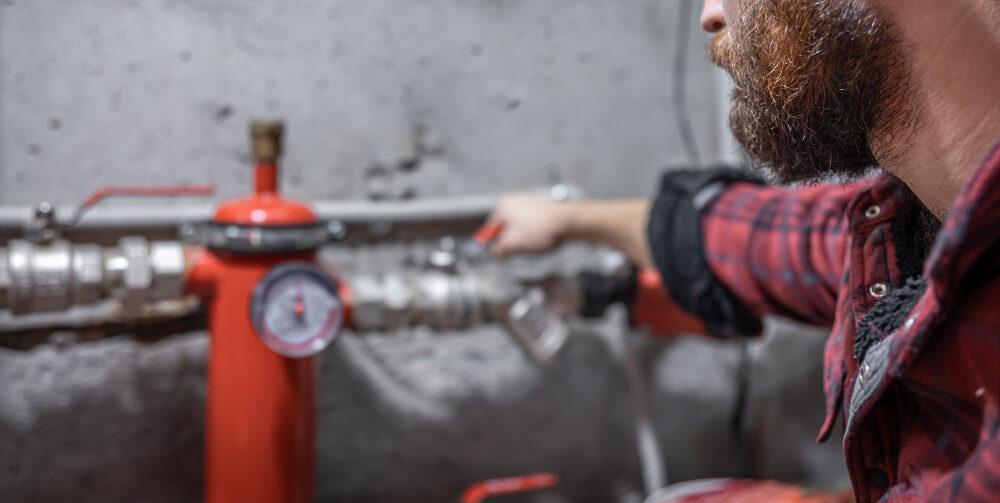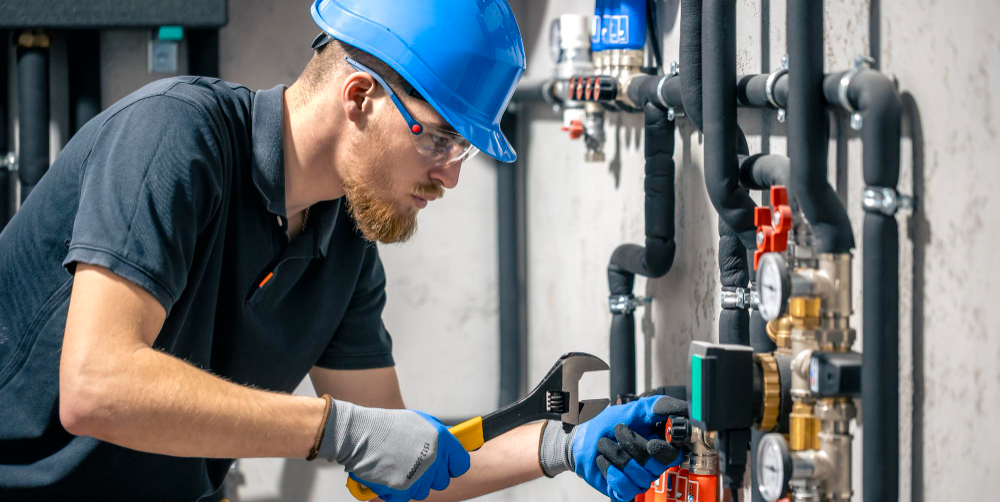Installing or replacing a gas line is not a typical weekend project — it’s a job that demands technical expertise, safety awareness, and strict compliance with local building codes. If you’ve been searching for reliable gas line installation services in your area, you’re already taking the right first step toward protecting your home and family. Proper installation ensures efficient appliance performance, prevents leaks, and safeguards your home from potentially life-threatening hazards.
Why Gas Line Safety Matters
Gas lines deliver natural gas to essential home systems such as furnaces, water heaters, fireplaces, and stoves. When installed correctly, they operate safely and efficiently for decades. However, even a small mistake — a loose fitting, improper seal, or damaged pipe — can lead to gas leaks, fires, or carbon monoxide exposure. That’s why professional expertise isn’t optional; it’s essential.
Licensed technicians use specialized tools, pressure testing equipment, and leak detection methods to ensure your gas system is sealed, vented, and compliant with all regulations. They also understand how to design pipe layouts that optimize flow while minimizing stress on joints and fittings.
Common Reasons for Gas Line Installation
Gas lines aren’t installed only in new construction. Many homeowners need upgrades or extensions as they remodel or add new gas-powered features. Here are the most common scenarios that call for professional installation:
- Adding or replacing a gas stove, dryer, or water heater
- Installing an outdoor kitchen or BBQ line
- Converting appliances from electric to gas
- Upgrading an old or corroded system for safety
- Running new gas service to an ADU (Accessory Dwelling Unit)
Regardless of the reason, working with experienced professionals ensures your system is properly sized, pressure-tested, and built to last.


How Professionals Plan a Gas Line Installation
Gas systems aren’t one-size-fits-all. Proper design requires calculating flow rates, pipe lengths, and appliance demands. A professional technician will:
- Evaluate your home’s gas meter and supply pressure
- Map the most efficient route for the new line
- Select the correct pipe diameter for consistent pressure
- Install appropriate shut-off valves and safety controls
- Conduct a complete pressure and leak test before activation
This careful planning ensures your system operates efficiently, safely, and in compliance with local building standards.
Why You Should Never DIY a Gas Line
It’s tempting to handle plumbing or electrical projects yourself, but gas line work is a completely different category. Even a small miscalculation in pressure or a minor gap in threading can lead to dangerous leaks. Certified technicians understand not only how to install but also how to test under multiple pressure levels to verify system integrity.
In Sacramento and surrounding areas, only licensed contractors can legally install or modify natural gas systems. Attempting a DIY installation could void insurance coverage, fail inspection, or put your family at risk.
Types of Gas Piping Used Today
Modern gas line installation uses several types of materials depending on location, budget, and application. The most common include:
- Black Iron Pipe: Traditional and highly durable, used in most residential installations.
- CSST (Corrugated Stainless Steel Tubing): Flexible and ideal for complex layouts where rigid pipe is impractical.
- PE (Polyethylene) Pipe: Typically used for underground service lines from the meter to the home.
- Copper Tubing: Occasionally used for interior gas applications but restricted in some jurisdictions.
A skilled gas line installation technician will recommend the best material for your system’s performance and compliance requirements.
Permitting and Inspection Requirements
Gas line work in California always requires a city or county permit. The installation must be pressure-tested and inspected before activation. This inspection ensures the line is sealed, properly supported, and free of leaks. Hiring professionals means they handle these details — from submitting permit applications to coordinating inspections — so your system meets every safety standard.
Signs Your Gas Line May Need Replacement
Older gas lines can develop corrosion, leaks, or loose joints over time. Warning signs include:
- Unexplained increases in gas bills
- Hissing or whistling sounds near lines
- Rotten egg odor (mercaptan gas additive)
- Dead plants near buried lines
- Yellow or flickering gas flames on appliances
If you notice any of these, shut off your gas immediately and contact your provider. Then call a local professional to inspect and replace damaged sections as needed.
Outdoor and Underground Gas Line Considerations
Installing outdoor gas systems, such as BBQs or pool heaters, involves additional challenges. Underground lines must be buried at specific depths and protected from moisture and soil corrosion. This is why many homeowners rely on local plumbing and heating experts who understand California’s soil conditions and building requirements.
Professional installers use corrosion-resistant coatings, tracer wires, and protective sleeves to ensure underground gas lines remain safe and accessible for future maintenance.
Energy Efficiency and Modern Gas Systems
Today’s gas systems are more efficient and eco-friendly than ever before. Properly sized lines improve appliance performance and reduce fuel waste. Upgrading your old infrastructure also reduces emissions and improves household energy ratings — particularly important in energy-conscious regions like Sacramento.
When paired with modern appliances, a professional gas line installation can make your entire home system more sustainable and cost-effective over time.
Professional Maintenance Tips
After installation, it’s wise to schedule annual inspections. Professionals will check for leaks, verify pressure levels, and ensure your line remains secure. This proactive maintenance helps prevent costly repairs and ensures safe, efficient operation year after year.
Long-Term Peace of Mind
According to Home Restoration Digest, homeowners who invest in licensed gas line services experience fewer leaks, lower repair costs, and greater confidence in their home’s safety. It’s a simple truth: when safety and precision come first, problems rarely follow.
Final Thoughts
Installing a gas line is one of the most technically demanding home improvement tasks — and one that must be done right the first time. By working with a certified team, you’ll ensure every connection is safe, efficient, and compliant. Whether you’re upgrading appliances or building new, trust professionals who understand the balance between precision, safety, and performance. Your family — and your peace of mind — are worth it.




